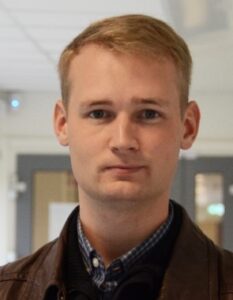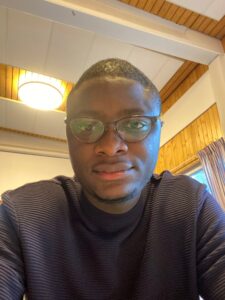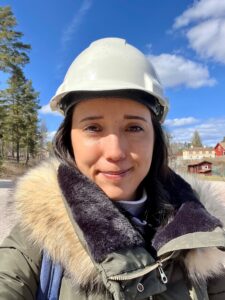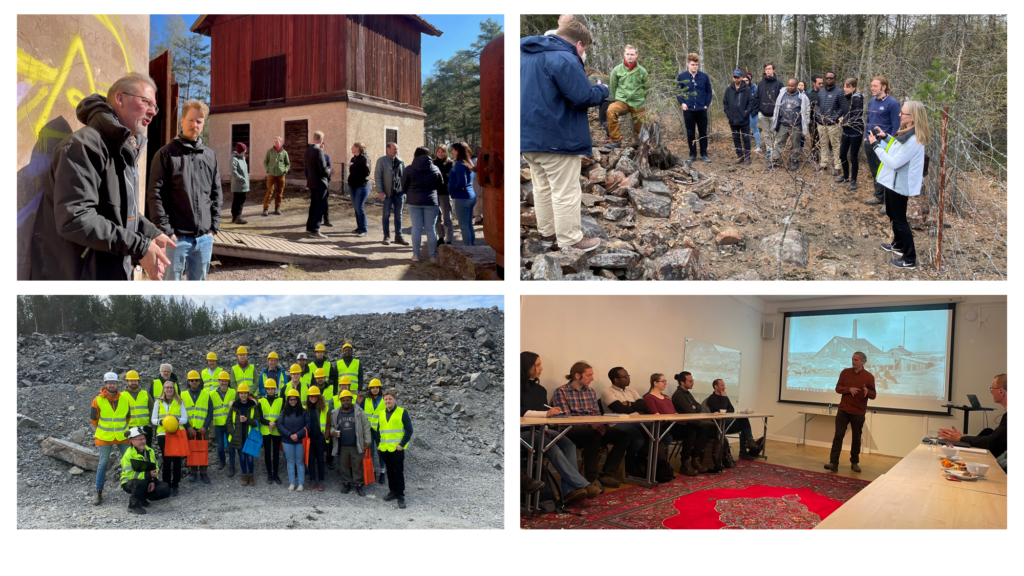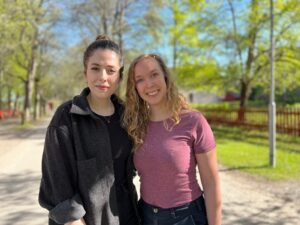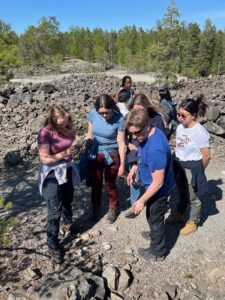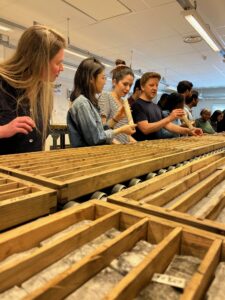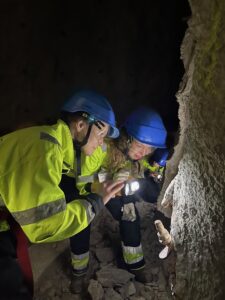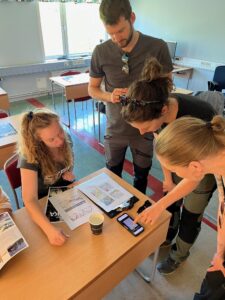Our PhD Student Network went on a three day tour around Bergslagen on the theme: Balancing cultural heritage, resource extraction and environmental values in historic mining areas.
Day 1 – The first stop was the R&D Hub for battery and cell development projects, Northvolt, outside Västerås. Thank you to our guides Eduard Marti Bigorra and Nathália Vieceli that walked us through the Revolt Pilot Plant. They broke ground in 2018, online by 2019 and has grown to over 1100 employees from over 85 nationalities. How cool is that! Sala Silvergruva was the next stop and we started with a history lesson with Niklas Ulfvebrand who told us about the historic mine as a modern tourist attraction.
Our guide and Network Manager Nils F Jansson took us down to 60 meters depth and we got to know more about the rich and exciting history of Sala Silvergruva. Erik Lundstam, Alicanto Labs, talked about Restarting the mines – a modern exploration. The visit to Sala ended with Michael Nilsson from Sala kommun talking about preserving and securing the area by reducing pollution in the watercourses of Sala Silvergruva and Pråmån.
Day 2 and a visit to Boliden Garpenberg underground mine – Sweden’s oldest mining area still in operation. Amazingly, Garpenberg has been a mining area since around 400 BC. Now complex ores containing zinc, lead, silver, copper and gold are mined here. Thanks to very successful exploration efforts, the major deposit in Lappberget was discovered at the end of the 1990s, which saved the mine from closure. Instead, it meant Boliden’s second biggest investment project ever could be carried out in Garpenberg in 2014.
The day started with a short introduction and security brief by Johan Olsson followed by two exiting site visits. One group went down to the depth of 1054 meters and the other group got to visit the Processing plant. Boliden Garpenberg had also gathered seven employees to talk about their path into the company, however straight or crooked, their view of the opportunities within the company followed by a Q&A. What a great idea! Thank you to Johan Olsson, Tomas Persson, Linda Sääv, Anders Melén, Thomas Seidl, Antonio Tančak, Marcel Gurdziel & Mikael Lilja.
The day ended with a site visit to the very popular core shed and the old mining chapel. The chapel used to have several functions. Firstly, the miners could hear the word of God before they started work for the day. Secondly, they could clock in for the working day in the building. As late as the 18th century, attendance at the miners’ prayer was mandatory (absence without a valid reason led to a fine).
Day 3 and the last day of the PhD Student Network Workshop tour where 19 PhDs from 5 different universities in Sweden travelled through Bergslagen to learn more about Balancing cultural heritage, resource extraction and environmental values in historic mining areas.
First out was Ronne Hamerslag, Monica Schön and Emma Bäckström from Nordic Iron Ore AB, whose main ambition is to resume mining operations at the previously operational mines Blötberget and Håksberg, and plans to expand to the intermediate Väsman field, which is considered to hold significant potential.
In Ludvika we met Erik Odens from Ludvika kommun who talked about the mining industry being strong in Bergslagen and the enormous growth that Ludvika is experiencing now and Petra Holmlund from AB Samarkand2015, which was founded in 2002 as a regional development company, owned by Ludvika and Smedjebackens municipalities, Dalarna County Council, Hitachi Energy and Ovako. The company’s main mission is to develop the region and to increase the region’s attractiveness.
Before lunch and the end of the tour, Arvid Stiernström, SLU – Sveriges lantbruksuniversitet, presented his work on Natural resource extraction and local perspectives on rural development in Sweden.
The network aims to organize two events per year with different themes, in different locations around Sweden or internationally. One of the network’s goals is to be a platform for the PhD students where they not only get an insight into the industry but also for networking, be inspired by and learn from each other, and other opportunities.
Thank you PhDs for joining us on this tour. We look forward to following your future paths and research. A big thanks also to all the guides, speakers and finally to the organizers of the trip, Nils F Jansson and Ervin Veress.





